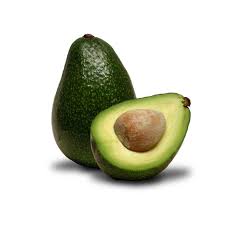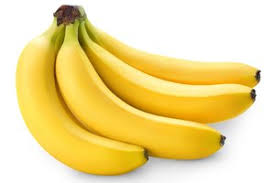Stress might seem harmless, but it’s anything but. While short-term stress can lead to bothersome headaches, stomach cramps, weight gain, and more bouts of colds and flu, chronic, unremitting stress impacts every part of your body, from your digestive and reproductive systems to your immune system.
Left unaddressed, chronic stress can even increase your risk for conditions such as obesity, type 2 diabetes, heart disease, depression, and anxiety, according to the National Institute of Mental Health (NIMH).
That’s right:”Stress isn’t just making you grumpier — it may also be making you fatter and sicker.”
Foods to Eat When Stressed
Warm, Soothing Foods
For conquering stress, a food’s nutrient profile might be just as important as how it makes you feel. Take a calming, warm cup of tea, for instance, says Sandra Meyerowitz, MPH, RD, an online nutrition coach and the owner of Nutrition Works in Louisville, Kentucky. There’s the soothing effect of sipping a warm drink, regardless of the flavor — but certain herbs have been shown to have a relaxing effect on their own, Meyerowitz says. For example one study published in March 2013 in the Journal of Psychopharmacology suggests chamomile may reduce anxiety by helping rewire the body’s stress response, and increasing production of the feel-good hormones serotonin and dopamine.
Dark Chocolate

Usually, dessert isn’t a good choice when you’re stressed, but dark chocolate may be an exception. This treat could help reduce stress in two ways — via its chemical impact and its emotional impact. Chocolate feels like such an indulgence that it can be a real treat to simply savor a piece of it, and that feeling alone can help reduce stress, says Meyerowitz. Dark chocolate, which is also rich in antioxidants, can also lower levels of stress hormones in the body, according to a Swiss study published in the Journal of Proteome Research in which participants had eaten about 1.5 ounces (oz) of the treat per day for two weeks. Just be sure to avoid excess calories in your diet by not overindulging in chocolate, advises Meyerowitz. Keep serving size in mind with dark chocolate, as the calories can add up quickly. Stick to a 1-oz serving or less of at least 60 percent cacao dark chocolate daily.
Avocados

Guac out to your heart’s content. Avocados are packed with healthy monounsaturated fats, vitamin C, vitamin B6, potassium, and fiber, making for a perfect stress-fighting snack. As mentioned, vitamins C and B6 can help reduce stress, and the fruit’s potassium may help lower blood pressure. Not to mention, the healthy fat and fiber in avocados can help contribute to satiety, discouraging you from unhealthy snacking when you’re stressed, suggests an April 2017 study in The FASEB Journal.
Leafy Greens:
You might think desk salads are boring, but for lowering stress, they may be one of the best choices you can make at lunchtime. Leafy-green vegetables, such as spinach and kale, as well as other raw fruits and veggies, are stress-busting powerhouses, as described in an April 2018 study in Frontiers in Psychology. As a rich source of magnesium, leafy greens can help regulate cortisol and blood pressure levels. Plus, green leafy veggies contain folate, which plays a key role in the production of the feel-good chemical dopamine.
Bananas

For a quick pick-me-up, skip Starbucks and reach for a banana instead. The yellow, potassium-rich fruit contains the mood-boosting chemical dopamine, along with magnesium, levels of which plummet during stressful times. A preliminary study published in Neuropharmacology also found that magnesium deficiency increased depression and anxiety symptoms in mice. Bananas are furthermore a rich source of certain B vitamins, such as vitamin B6, which helps the nervous system run correctly, and can decrease stress and fatigue, according to a July 2010 study in Psychopharmacology that looked at the use of high-dose B-complex vitamins. An added perk: The potassium bananas offer can help lower high blood pressure, according to Harvard Medical School.
Fatty Fish:
Stress can tax the heart, but noshing on fatty fish can help strengthen your ticker and boost your mood, to boot. Heart-healthy omega-3 fatty acids in whole fish like tuna, halibut, salmon, and sardines may help ease depression, suggests a September 2015 review in Journal of Epidemiology & Community Health. Lowering overall stress and anxiety is another possible benefit, according to a study in the August 2015 Clinical Psychopharmacology and Neuroscience.
Water:
Looking for a quick and simple way to ease stress? Fill your cup with water and sip away! The importance of hydration during stressful times is well-documented. Even mild dehydration can increase cortisol levels, which contributes to increased stress, as described in a study in Journal of Sports Sciences. While drinking enough water will not make your stressors vanish, taking this step will help set your body up to handle stress when it does occur. According to the National Academies of Sciences, Engineering, and Medicine, the average woman needs about 2.7 liters of water per day, while the average man needs about 3.7. (About 80 percent of that hydration should come from beverages, whereas the remaining 20 percent can come from food.)
Milk:
Your mom might’ve been onto something when she made you drink all your milk at the dinner table. Turns out, calcium might not only strengthen your skeleton — it could also brighten your mood. A December 2012 study in Nutrition Research and Practice found that Korean women who consumed the least calcium reporting feeling the most depressed. Milk and other dairy with calcium and added vitamin D can help muscles relax and stabilize mood; a January 2017 study in Obstetrics & Gynecology Science suggests these nutrients may even ease symptoms of premenstrual syndrome, which we ladies know can definitely crank up the stress!
Nuts:
Nuts are a boon to your health in more ways than one. First, they’re satiating, meaning they can help ward off unhealthy cravings. Second, they could help lower blood pressure, according to a July 2012 study in Hypertension, which focused on pistachios. And third, Meyerowitz says, their B vitamins have been shown to help lower stress levels. Just remember to reach for only a small handful, as nuts are calorie dense and can lead to weight gain if you eat too many.






